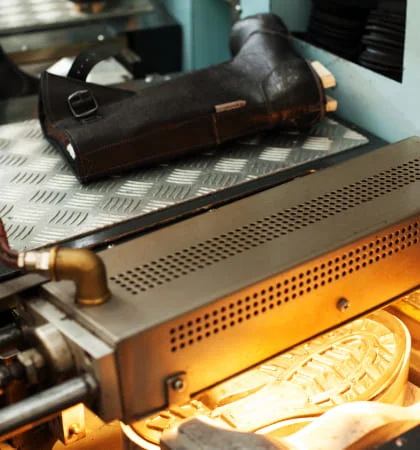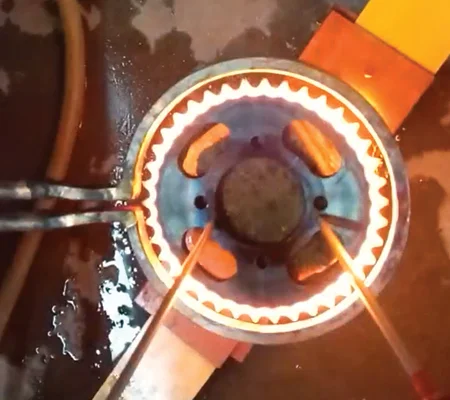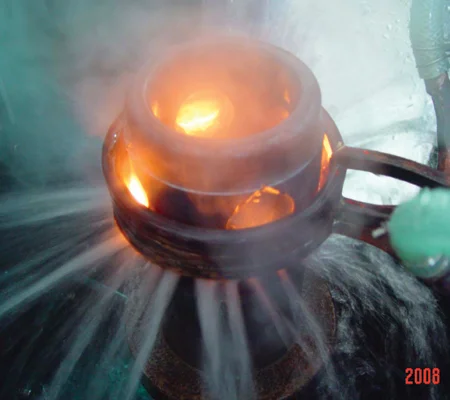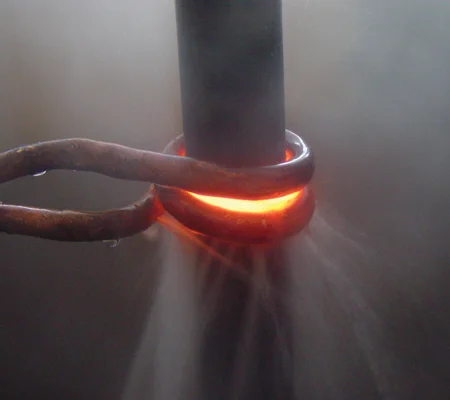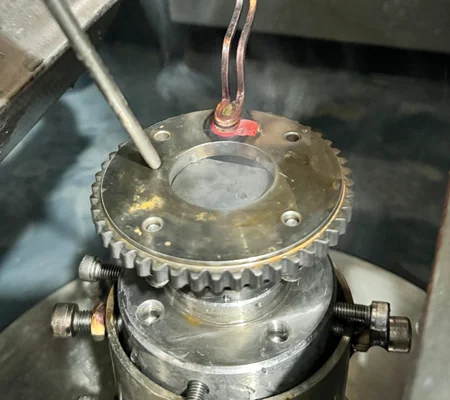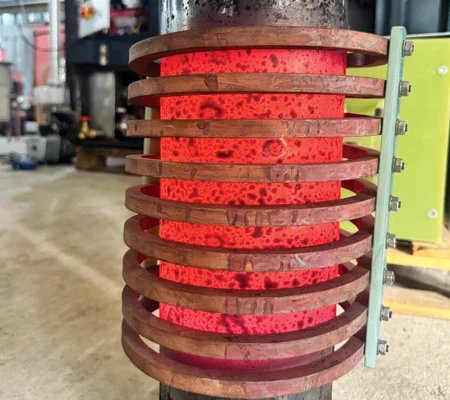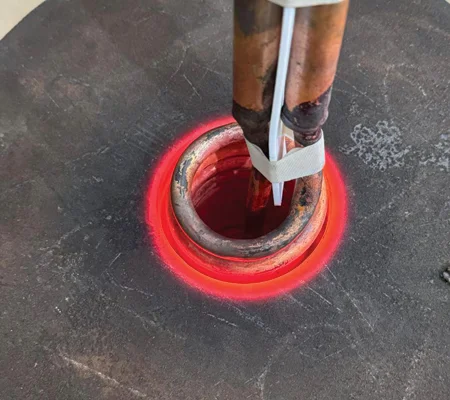01
The metal part is placed within an induction coil, which generates an alternating electromagnetic field when energized with high-frequency alternating current (AC).
02
This field induces eddy currents in the metal, causing rapid heating of the surface.
03
04
This rapid cooling transforms the heated surface layer into a hard, martensitic structure
05
To reduce brittleness and enhance toughness, a tempering process may follow, where the component is reheated to a lower temperature and then allowed to cool slowly.


